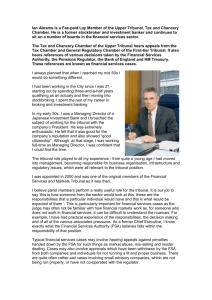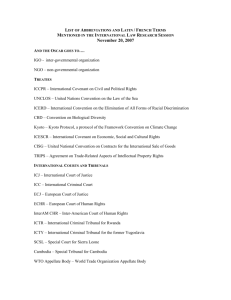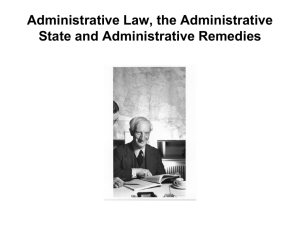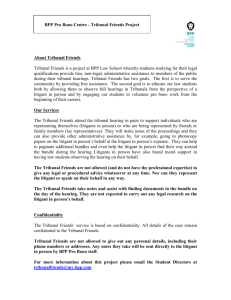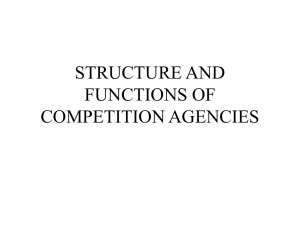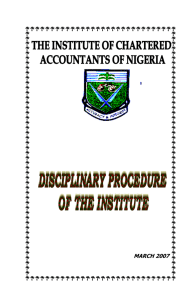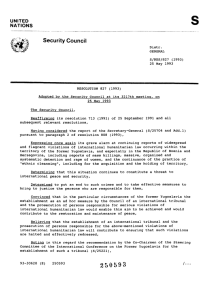Category: Obligation to Provide Access to Legal Remedies Sub
advertisement
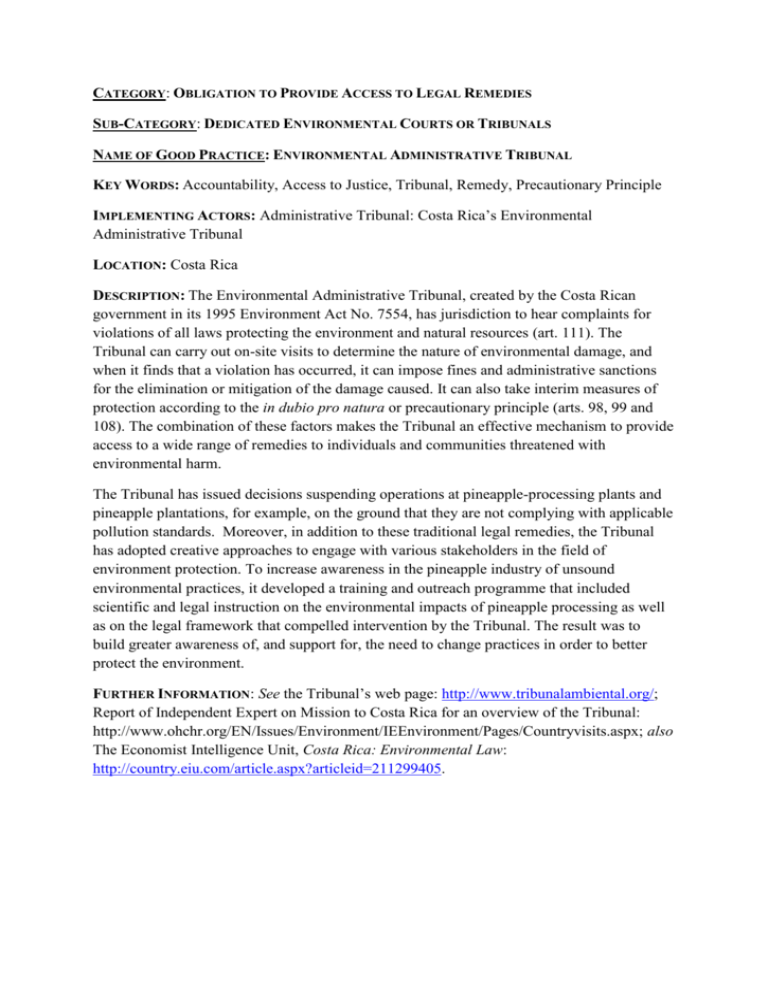
CATEGORY: OBLIGATION TO PROVIDE ACCESS TO LEGAL REMEDIES SUB-CATEGORY: DEDICATED ENVIRONMENTAL COURTS OR TRIBUNALS NAME OF GOOD PRACTICE: ENVIRONMENTAL ADMINISTRATIVE TRIBUNAL KEY WORDS: Accountability, Access to Justice, Tribunal, Remedy, Precautionary Principle IMPLEMENTING ACTORS: Administrative Tribunal: Costa Rica’s Environmental Administrative Tribunal LOCATION: Costa Rica DESCRIPTION: The Environmental Administrative Tribunal, created by the Costa Rican government in its 1995 Environment Act No. 7554, has jurisdiction to hear complaints for violations of all laws protecting the environment and natural resources (art. 111). The Tribunal can carry out on-site visits to determine the nature of environmental damage, and when it finds that a violation has occurred, it can impose fines and administrative sanctions for the elimination or mitigation of the damage caused. It can also take interim measures of protection according to the in dubio pro natura or precautionary principle (arts. 98, 99 and 108). The combination of these factors makes the Tribunal an effective mechanism to provide access to a wide range of remedies to individuals and communities threatened with environmental harm. The Tribunal has issued decisions suspending operations at pineapple-processing plants and pineapple plantations, for example, on the ground that they are not complying with applicable pollution standards. Moreover, in addition to these traditional legal remedies, the Tribunal has adopted creative approaches to engage with various stakeholders in the field of environment protection. To increase awareness in the pineapple industry of unsound environmental practices, it developed a training and outreach programme that included scientific and legal instruction on the environmental impacts of pineapple processing as well as on the legal framework that compelled intervention by the Tribunal. The result was to build greater awareness of, and support for, the need to change practices in order to better protect the environment. FURTHER INFORMATION: See the Tribunal’s web page: http://www.tribunalambiental.org/; Report of Independent Expert on Mission to Costa Rica for an overview of the Tribunal: http://www.ohchr.org/EN/Issues/Environment/IEEnvironment/Pages/Countryvisits.aspx; also The Economist Intelligence Unit, Costa Rica: Environmental Law: http://country.eiu.com/article.aspx?articleid=211299405.




